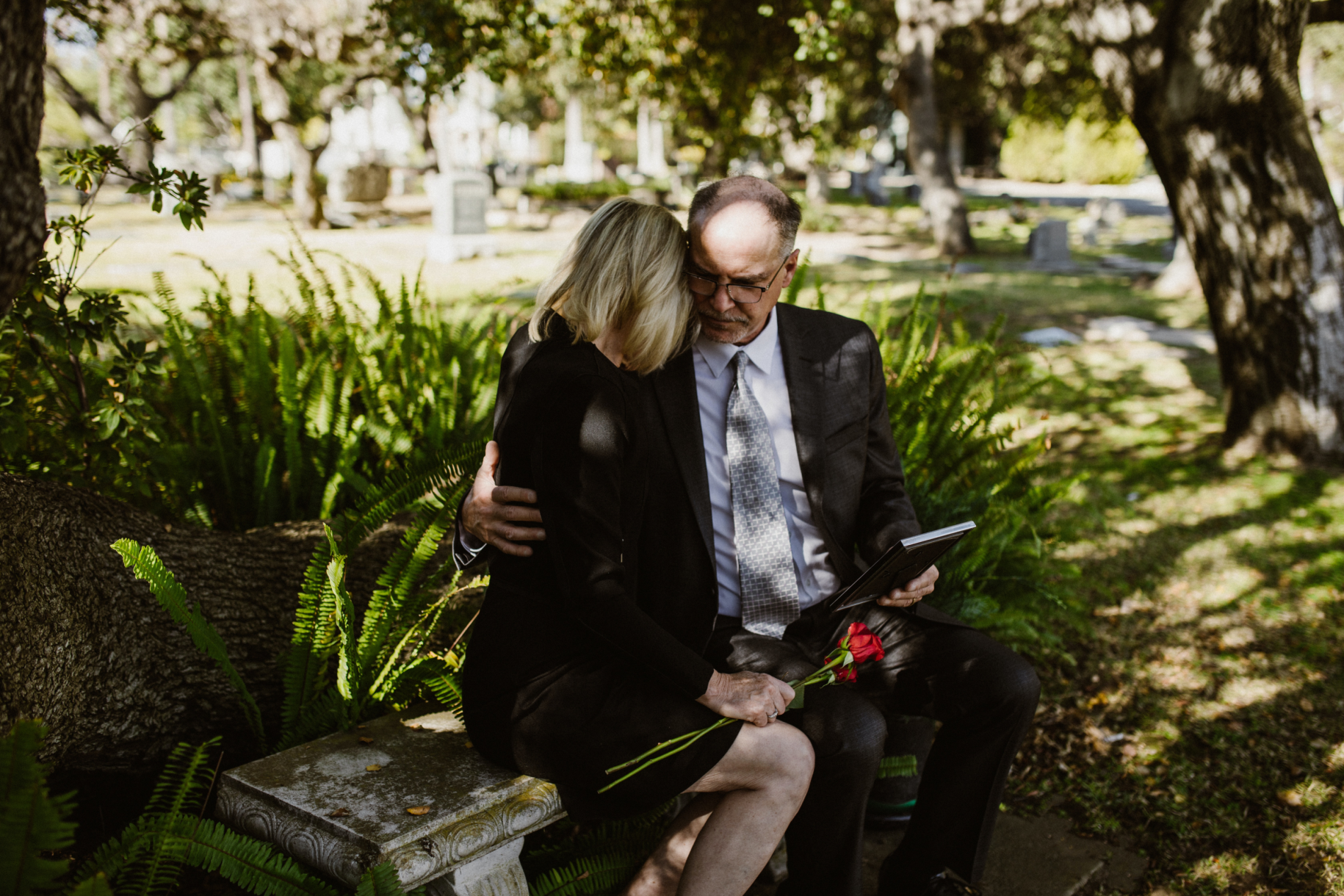The Grieving Process


Loss of a loved one to a brain tumor is a devastating and challenging experience for all involved. Despite all that may have been prepared, the loss can feel much too sudden. Shock, sorrow, guilt, anger, or perhaps even bittersweet emotions of relief are all part of a natural response to loss in the process of grieving.
For some patients and their loved ones, this process began at the time of diagnosis. Thinking about impending death and the loss of daily routines, independence and unfulfilled dreams can bring anticipatory grief. Although acceptance of the reality of death may help to finish preparations for it, it may not lessen the pain felt upon their passing.
The process of grieving can take a long time and varies for everyone. Patient families and caregivers may be overwhelmed with calling other family members or friends, arranging for funeral or memorial services, executing the will, among other business. These tasks may serve as distractors that temporarily delay or slightly dampen the intensity of the grief response.
The bereaved may not have time or energy to grieve until several weeks later. Grief may more commonly be experienced at night and when alone without distractions. Strong emotions can be triggered by events such as anniversaries and birthdays or mementos when they serve as reminders of loss. Gradually, these acutely painful reminders can become peacefully nostalgic.
Grief was historically described as having five “stages” in 1969 by Elisabeth Kubler-Ross, a Swiss-American psychiatrist. Although this is a convenient way to describe the grieving process, it should not be taken literally to mean that there is an orderly progression of emotions to grief.
Each individual experiences grief differently with emotions that come in waves and can overlap. We describe below the five stages of grief as common emotional reactions in the grieving process that may or may not occur.
- Denial—feeling as if the deceased is still alive. This can manifest as believing that there has been a mistake or avoiding situations that trigger painful reminders of the loss. Numbness, confusion, and mindless behaviors may occur as part of denial.
- Anger—redirecting the feeling of loss as anger that can be expressed towards the situation, other people, or objects. This can manifest as frustration, irritability, and resentment. You may feel that life is unfair and ask yourself questions like “Why did this happen to me?”
- Bargaining—making a deal with yourself or a higher power in the belief that if we act a certain way, the outcomes will be better. Feelings of regret or guilt can also manifest with “What if” questions when thinking about the past.
- Depression—intense feelings of sorrow and despair that may also lead to changes in appetite, sleep, energy levels or interests. You may begin to face the reality and finality of loss which can lead you to feel stronger emotions of sadness.
- Acceptance—acknowledging the reality and taking steps to move forward and live with the loss. This can manifest with more engagement with the present day and a better understanding of your emotions as part of the natural grieving process.
When faced with the intense suffering of loss, there are many ways that people cope to ease the pain. Some people may be able to control the amount of pain they are able to bear by experiencing grief in small doses and using coping mechanisms to divert the rest of the pain away until they are able to better tolerate it. Below are examples of several coping mechanisms:
- Finding comfort in faith and prayer
- Increased activity and involvement with others
- Expressing your feelings
- Thinking about the positives
- Reminding yourself of what you are grateful for
The death of a loved one can impact many aspects of life, functioning, and relationships. Depending on the relationship to the patient, the circumstances of their death, age, gender, and culture, survivors can have unique grieving experiences.
Hearing the deceased speak, waiting for them to come home or call “as usual”, and considering their preferences in decision making is common after loss. However, the frequency of these events usually decreases over time with acceptance.
Although the length of grieving varies, it commonly resolves within 6 – 12 months. Survivors should speak to their physician if they continue to have significant disruption in their normal activities and relationships, experience physical discomfort, or have thought about hurting others or themselves.
Loss of a loved one can be one of the most difficult experiences to get through. Finding the courage to move forward takes incredible strength and resilience. Remember that you do not have to go through it alone. Reach out to friends and family, support groups, and counseling centers to receive guidance and support throughout the grieving process.











